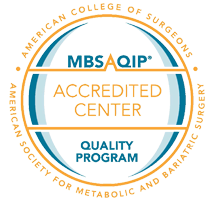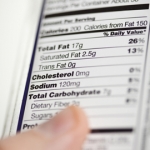 After bariatric surgery in Utah your diet will change in just about every way imaginable. Weight loss surgery will reduce how hungry you feel, but it will also require you to eat smaller portions and pay more attention to the nutrients you are consuming in each bite.
After bariatric surgery in Utah your diet will change in just about every way imaginable. Weight loss surgery will reduce how hungry you feel, but it will also require you to eat smaller portions and pay more attention to the nutrients you are consuming in each bite.
Luckily for you, your bariatric surgeon can provide you with help during this dietary transition. As you adjust to your post-bariatric lifestyle you will be equipped with nutrition information, recipes and cooking skills to help you stay healthy as you lose weight. Along with the ongoing support and guidance from your weight loss surgeon, making small behavioral changes in your day-to-day life can boost your weight loss efforts. One of these habits worth learning is reading nutrition labels.
Nutrition labels are posted on every bag, box and bottle of prepackaged foods and drink. They give you basic information about what is in the item you are about to consume, yet most people look the other way and pay no attention to what they are trying to share.
Learning how to read a nutrition label is a great way to become more knowledgeable about the foods you eat. Here are a few steps to get started:
- Check the servings and calories: The top of the nutrition label is the best place to start. This is where you will find basic information about how many calories per serving are in the item at hand, and how many servings are in a container. Never assume that one bottled beverage or one prepackaged snack is one serving size.
- Look at the protein: After bariatric surgery, protein is important, so check how much protein is in every item you eat and make sure you are eating your allotted amount. The more protein per calorie the better.
- Limit bad nutrients: Yes, there are such things as bad nutrients. Sugar, sodium and fat can spell trouble when eaten in excess. These nutrients are listed in the middle of the panel. Try to find foods that are as low as possible in these items.
- Understand the percentages: On the far right of a nutrition label you will see percentage points for every nutrient listed. This is telling you how much of your daily recommended allotment is fulfilled by this item. After weight loss surgery your daily values may be different, so check with your weight loss surgeon to find out how much of each nutrient you should be consuming.
Reading nutrition labels is a great way to educate yourself about the foods you are eating, and to help your family stay healthy as you are losing weight. For more advice on forming a healthy diet after bariatric surgery, talk with your weight loss surgeon.


